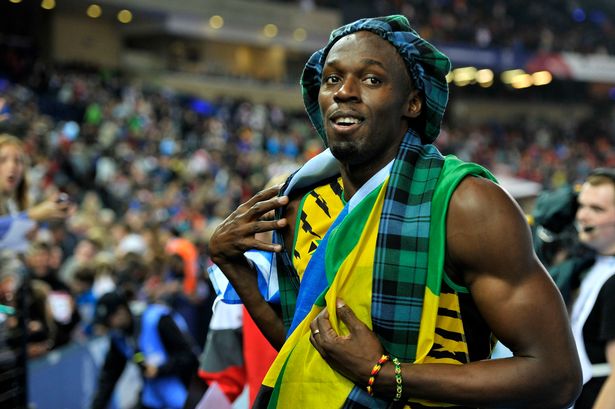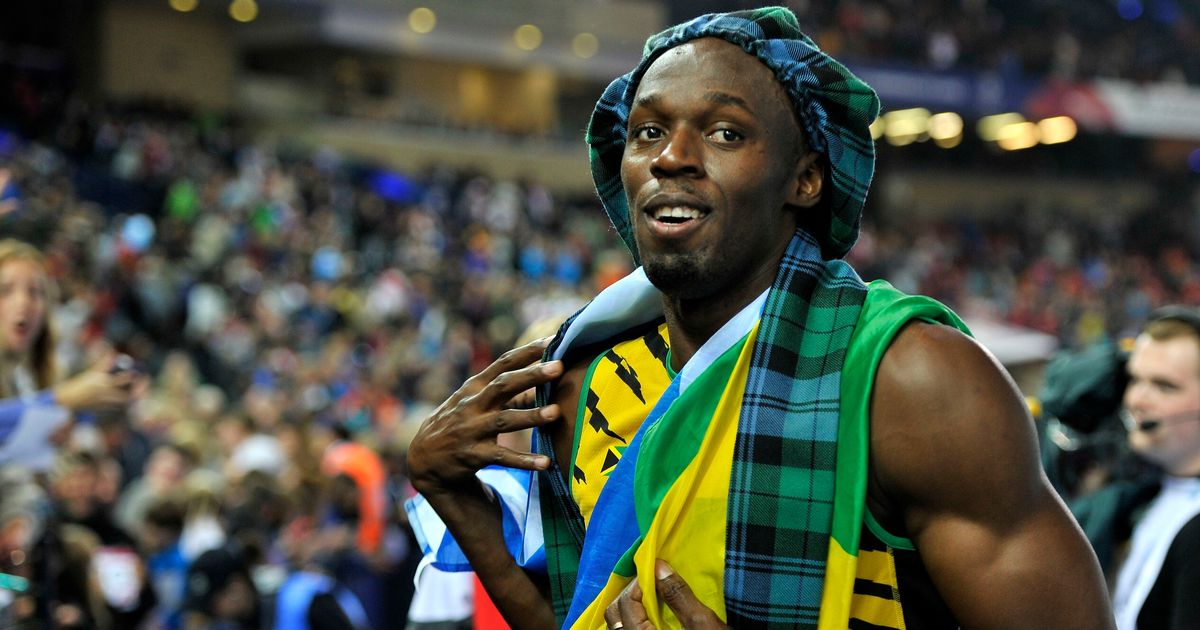The BBC has yet to sign a deal to show the Commonwealth Games in Glasgow with 12 months to go before the event kicks-off. Usain Bolt after winning the men’s 4x100m relay at Hampden Park during the 2014 Commonwealth Games in Glasgow(Image: PA)
Usain Bolt after winning the men’s 4x100m relay at Hampden Park during the 2014 Commonwealth Games in Glasgow(Image: PA)
The Commonwealth Games is at risk of a TV blackout in the UK with no broadcast deal yet secured for the event’s return to Glasgow next year.
The BBC has been the principal broadcaster of the sporting extravaganza since 1954 but the corporation confirmed today it was still in talks over whether this would continue in 2026.
Insiders said some Beeb bosses were unconvinced of the event’s continuing relevance, with fewer countries willing to host it.
Glasgow was previously announced in September last year as an emergency stand-in for the next Games after several other cities pulled out over cost fears.
The vast majority of the event’s budget is now coming from the £100m compensation the Australian state of Victoria paid Commonwealth organisers after backing out.
The UK and Scottish Governments both refused to underwrite the costs of staging the event, citing wider pressures on public finances.
An agreement to broadcast the previous Games in Glasgow in 2014 was in place two years before it kicked-off.
READ MORE: Labour ‘can’t win in Scotland’ because of North Sea oil and gas ban, warns union chiefREAD MORE: Donald Trump whisky tariffs ‘bad for business’ as President urged to reconsider ahead of Scotland visit
Phil Batty, chief executive of Glasgow 2026, said: “This week we have just announced Sky New Zealand as one of our broadcast partners.
“We also have Channel 7 in Australia, and there will be news on a UK broadcaster later this year.”
A spokeswoman for the Games told the Record: “We’re in positive discussions with broadcasters across the Commonwealth, including the UK, and further announcements will be made in the months ahead.”
First Minister John Swinney has said he is confident Glasgow is “well-organised and well-prepared” for a new-look Games that will capture the public’s imagination.
He said: “All of our experience tells us that, on major events, the people of Scotland – and especially in Glasgow – get engaged.”
Swinney also backed Glasgow’s decision to save an event which has been criticised in some quarters as being an outdated link to Britain’s colonial past.
He told the BBC: “The Commonwealth is still a very important forum for international co-operation and partnership between countries.
“And, frankly, we need more international co-operation and friendship and collective endeavour in a world that is becoming increasingly fractured.”
The event has been massively scaled-back as a result of cost considerations, with just 11 sports being contested across four venues.
Athletics will be staged at Scotstoun stadium, not Hampden Park, while swimming events will once again be held at the existing Tollcross pool.
The overall budget for the 2014 event was £543m, but this time around just £114-130m will be spent.
Petria Thomas, head of the Australian Commonwealth commission, said: “We’re incredibly grateful and fortunate that the Scottish have stepped up to the mark here. It was obviously highly disappointing that the Victorian government pulled out and it left the Commonwealth sport movement in a very difficult position.
“It’s fantastic that the Games will be on in Glasgow. Obviously a little bit of a different look to them this time with fewer sports which is a shame. But it’s the reality of the position that the Commonwealth sport movement was put in, unfortunately.”
To sign up to the Daily Record Politics newsletter, click here
